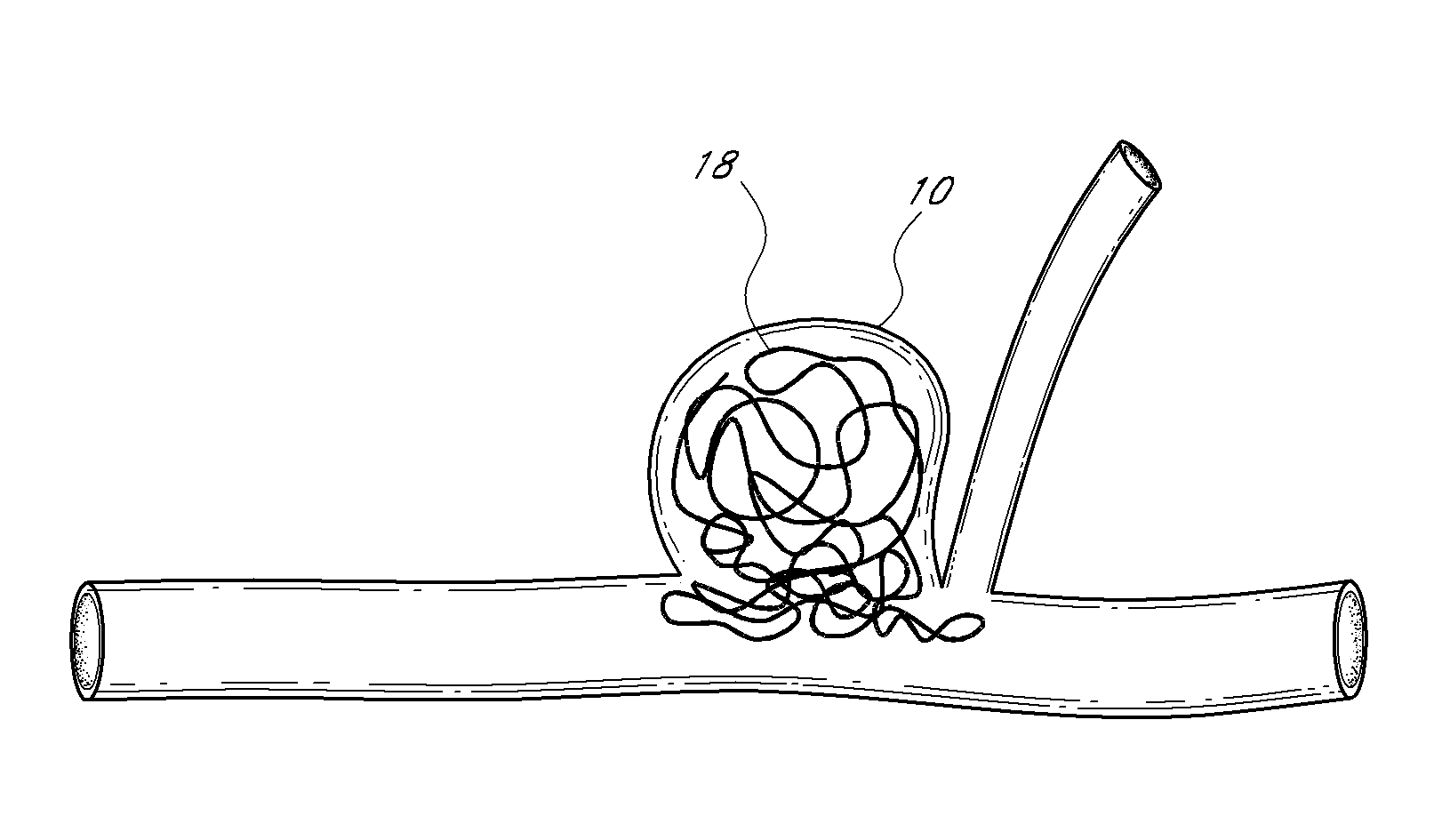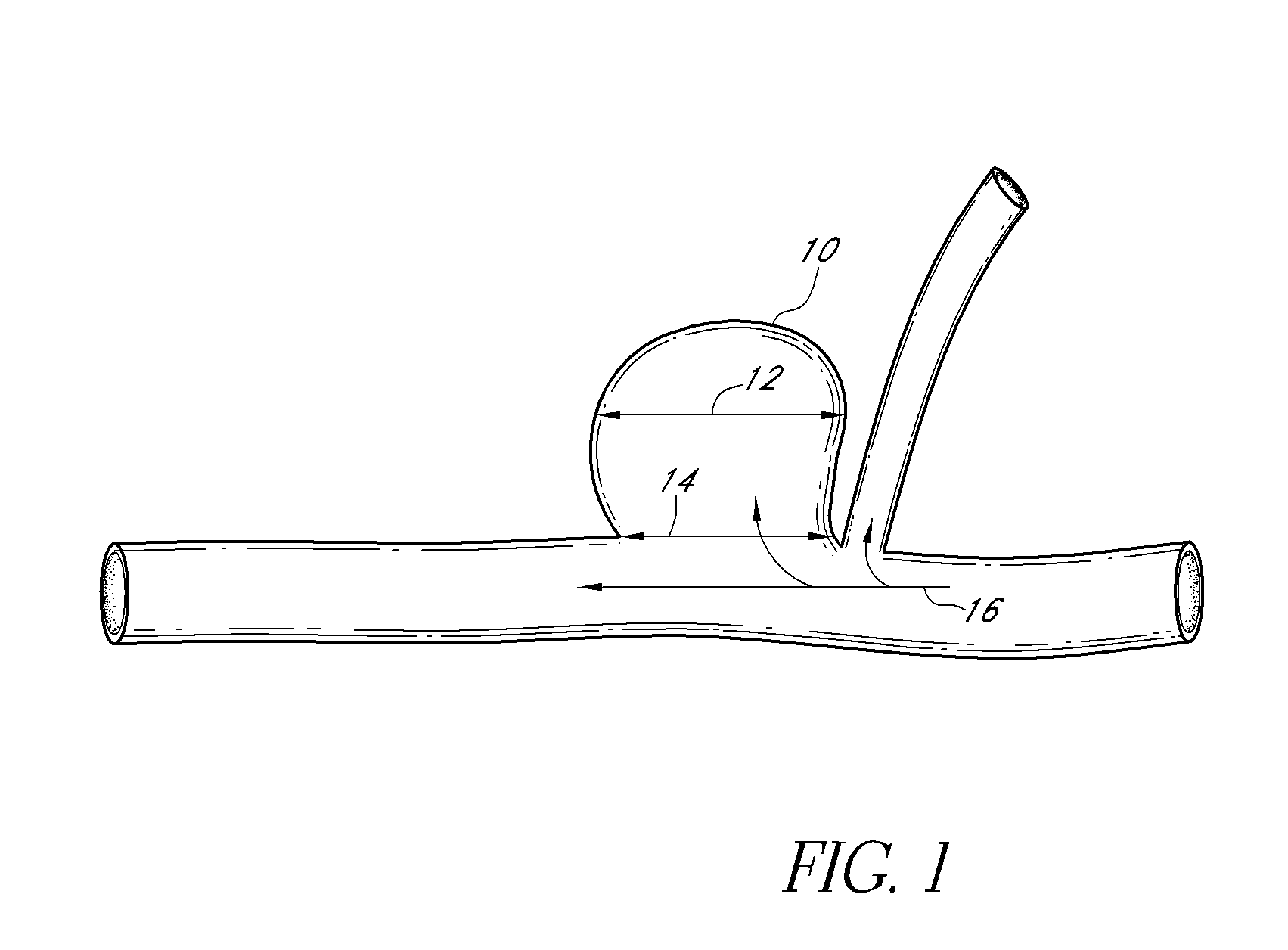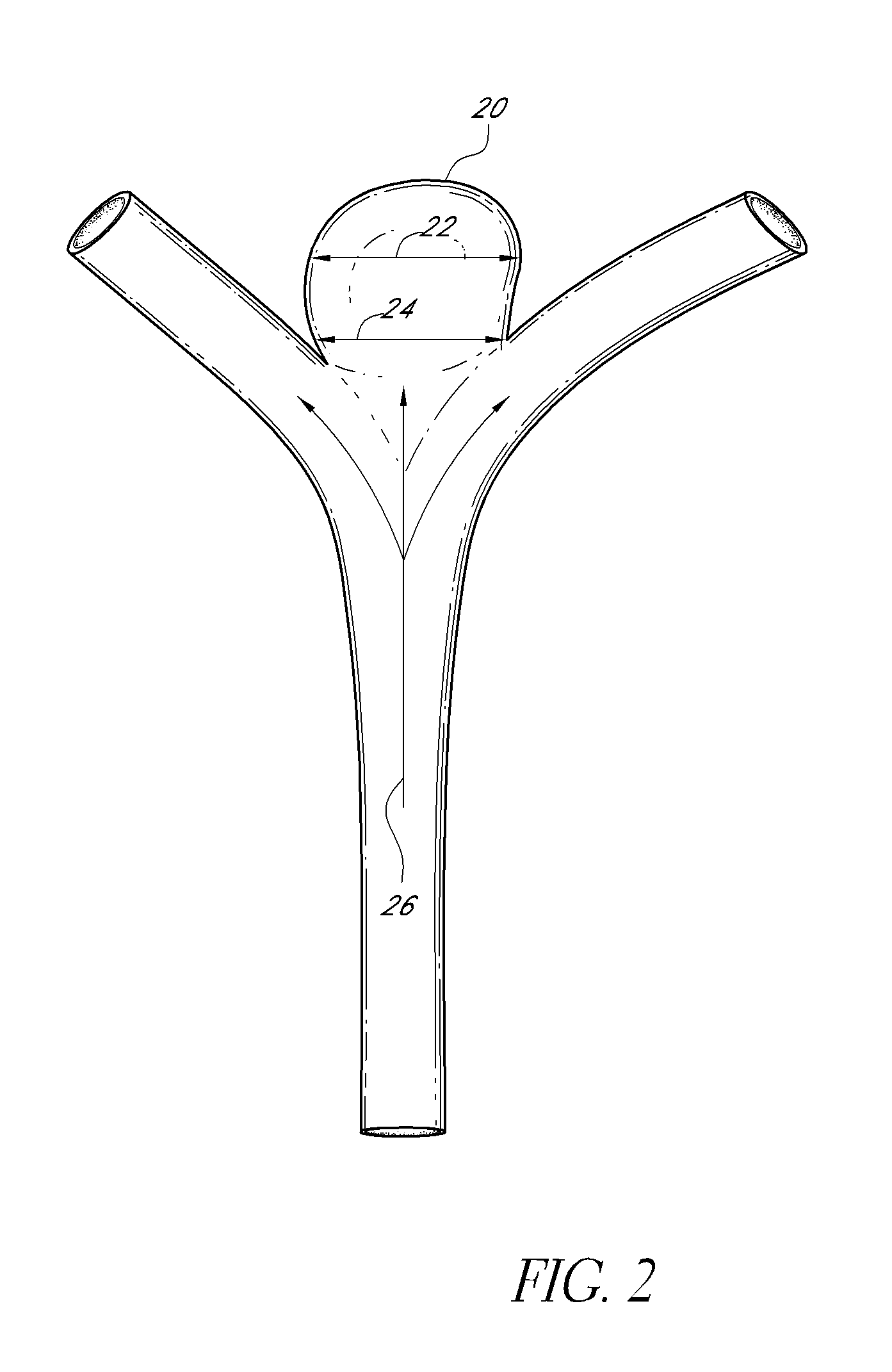Vascular remodeling device
a technology of vascular remodeling and vascular valves, applied in the field of vascular remodeling devices, can solve the problems of occlusion of arterial vessels, stroke, and/or death, and achieve the effect of inhibiting the herniation of embolic materials
- Summary
- Abstract
- Description
- Claims
- Application Information
AI Technical Summary
Benefits of technology
Problems solved by technology
Method used
Image
Examples
Embodiment Construction
[0045]Although certain embodiments and examples are described below, those of skill in the art will appreciate that the invention extends beyond the specifically disclosed embodiments and / or uses and obvious modifications and equivalents thereof. Thus, it is intended that the scope of the invention herein disclosed should not be limited by any particular embodiments described below.
[0046]FIG. 5 illustrates an example embodiment of a generally spherical vascular remodeling device 80. It will be appreciated that the device 80 may be more compliant than the vasculature in which it is deployed such that it may be somewhat misshapen (e.g., non-spherical, for example as illustrated in FIG. 9B) after being deployed, and that the phrase “generally spherical” describes the shape of the device 80 when in an expanded (e.g., fully expanded) state outside of vasculature. Additionally, the phrase “generally spherical” distinguishes the device 80, which is generally uniform in each dimension in an...
PUM
 Login to View More
Login to View More Abstract
Description
Claims
Application Information
 Login to View More
Login to View More - R&D
- Intellectual Property
- Life Sciences
- Materials
- Tech Scout
- Unparalleled Data Quality
- Higher Quality Content
- 60% Fewer Hallucinations
Browse by: Latest US Patents, China's latest patents, Technical Efficacy Thesaurus, Application Domain, Technology Topic, Popular Technical Reports.
© 2025 PatSnap. All rights reserved.Legal|Privacy policy|Modern Slavery Act Transparency Statement|Sitemap|About US| Contact US: help@patsnap.com



